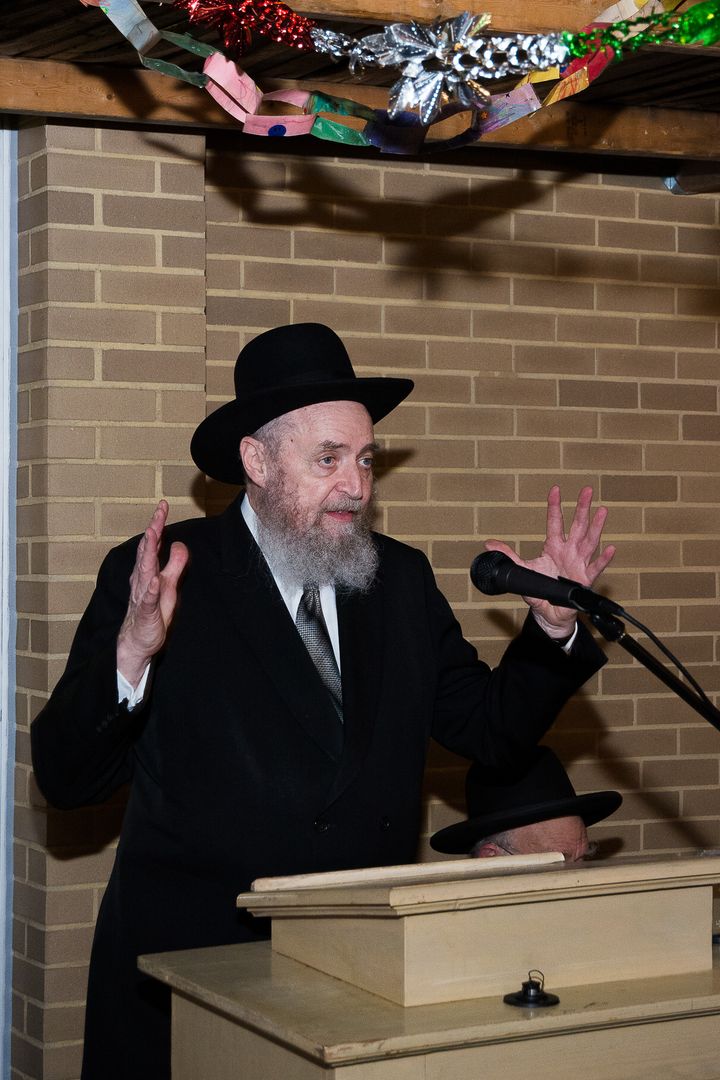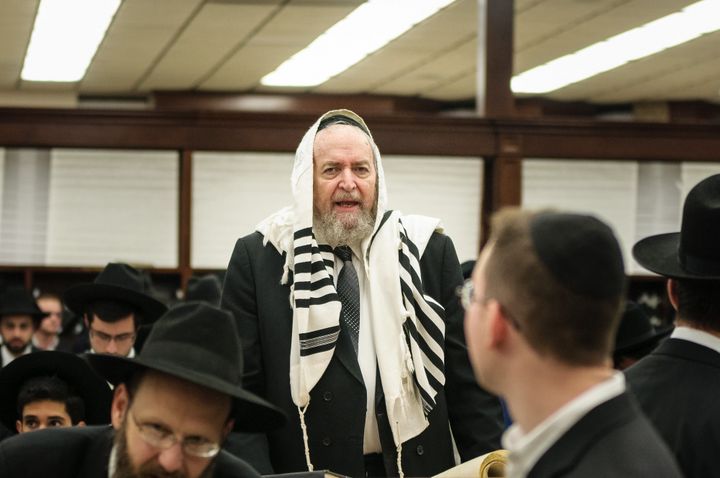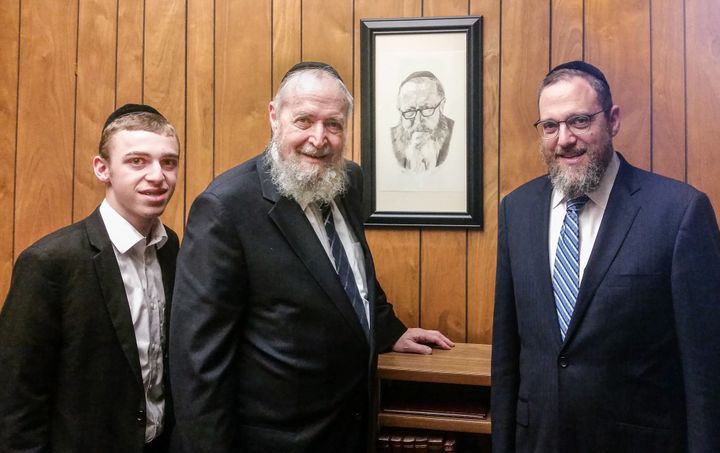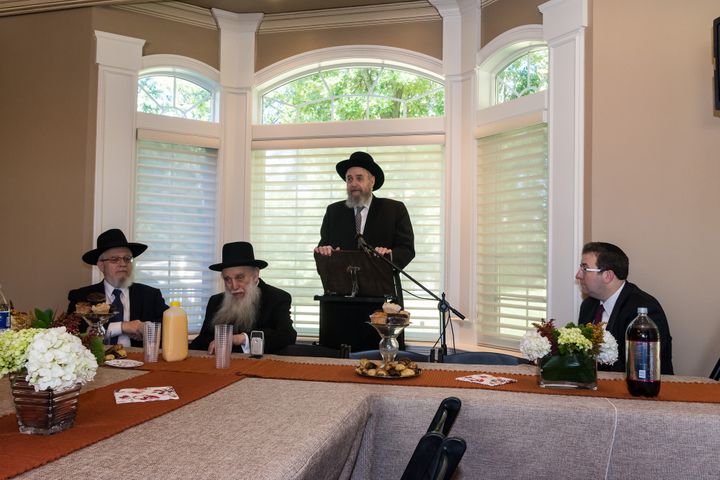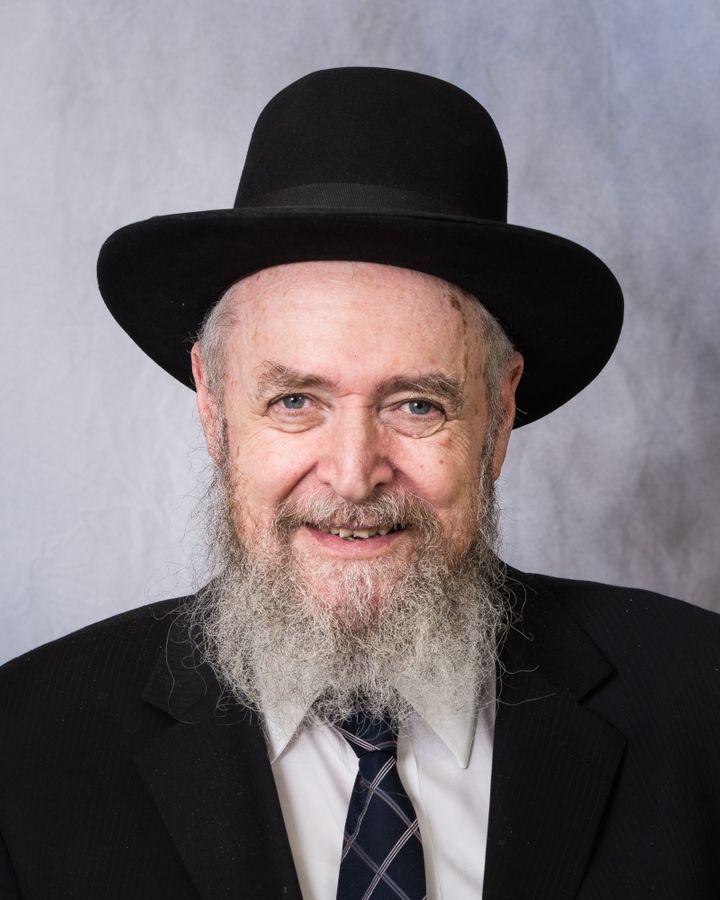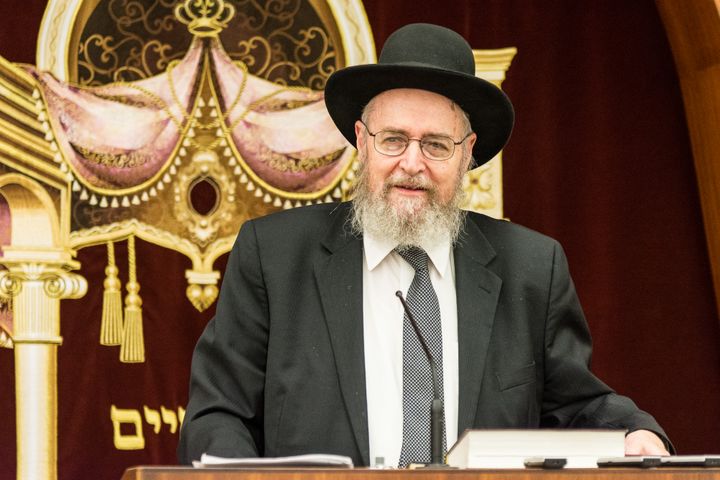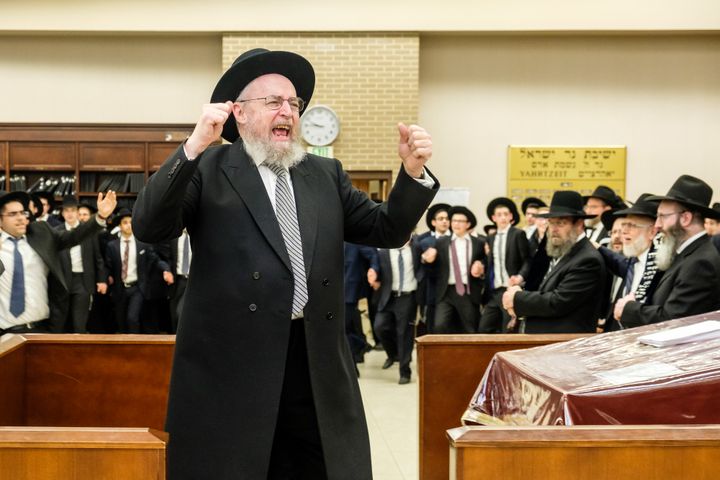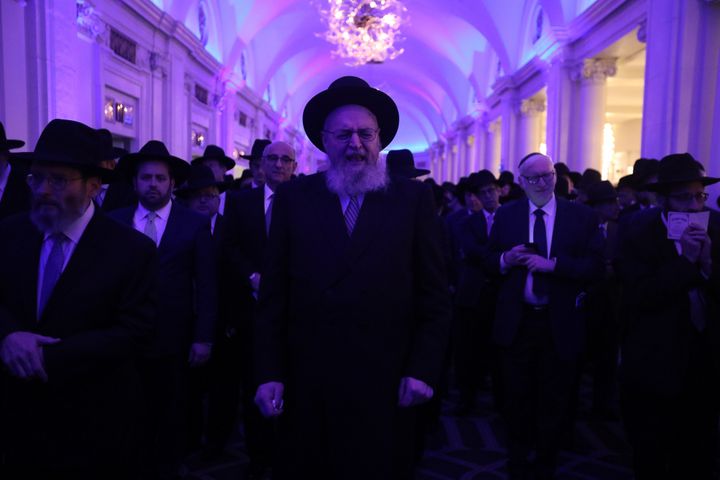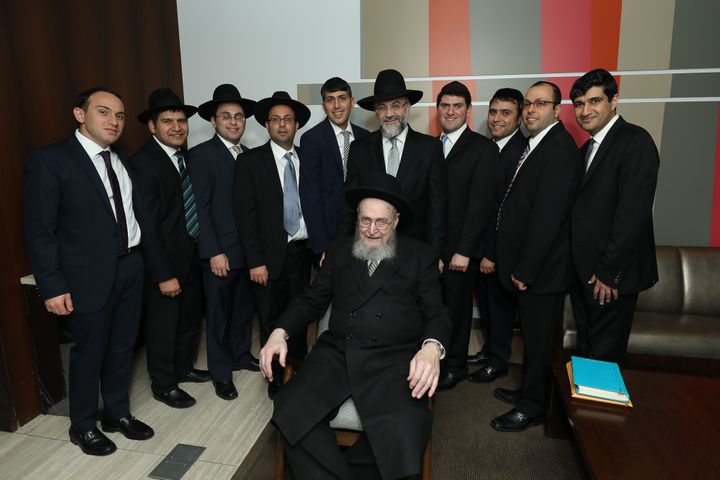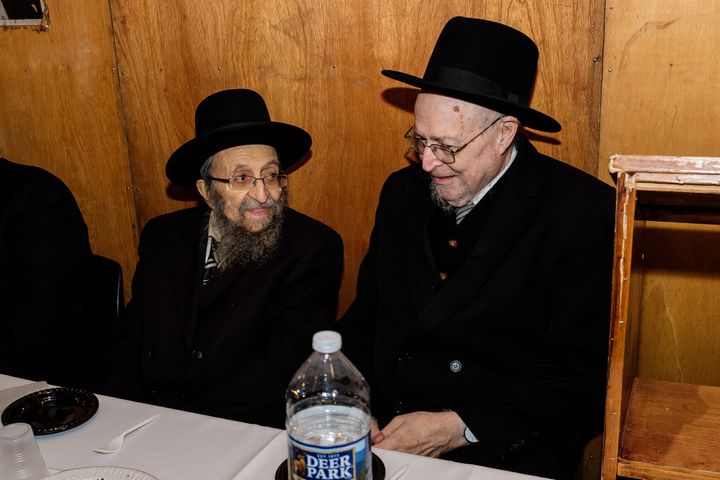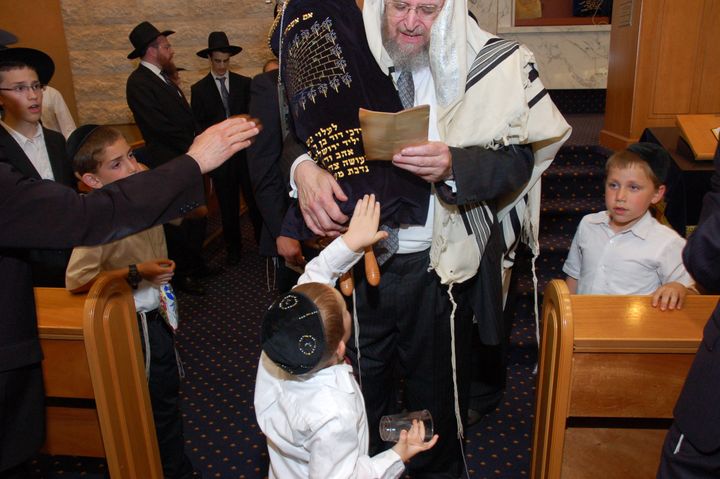Rav Sheftel Neuberger z’l was a study in contrasts.
He was a born leader who spent his life following in the footsteps of others. He was always in the spotlight, but never needed to be the center of attention. His life revolved around his learning but he could converse effortlessly about the stock market or travel. He devoted himself to serving both Ner Yisroel and Klal Yisroel, but was still deeply involved in the lives of every member of his family.
In short, he was Rav Sheftel, doing the impossible, and making it look easy, day after day after day.
Growing Up Neuberger
It wouldn’t be totally accurate to say that Rav Sheftel grew up in Baltimore or Pikesville or even the state of Maryland. The son of Rabbi Herman Naftoli and Judith Neuberger and the nephew of the Rosh HaYeshiva zt”l Rav Yaakov Yitzchok Ruderman, Rav Sheftel grew up in Ner Yisroel seeing his uncle wearing the mantle of yeshiva’s ruchniyus, while his father handled the gashmius side of its operations. Raised in that environment, Rav Sheftel had the ability to absorb the gadlus ha’adom of Slobodka through the Rosh Yeshiva, yiras shomayim through his close relationship with Rav Dovid Kronglass, the sharp clarity of Rabbi Yaakov Weinberg and the geshmak in learning of Rabbi Yaakov Kulefsky, inculcating those midos into the core of his being.
In addition to being known for his self-confidence and intelligence, Rav Sheftel was a serious talmid chochom who was very much aware of everything that was going on in the world around him, traits he shared with his four younger brothers. That was par for the course in the family home, where Shabbos meals included a potpourri of guests from various locations and all walks of life, and Rabbi Herman Neuberger taught his sons by example about their achrayus to assist others 24 hours a day, seven days a week.
Even as a bochur, Rav Sheftel was already known for both his hasmada and his magnetic personality. Agudath Israel of America’s Executive Vice President Rabbi Chaim Dovid Zwiebel remembered Rav Sheftel as an older camper in Camp Munk and leader of the opposing color war team, Arzei Levanon.
“He led the grand march and the grand sing and we lost color war because of him,” mused Rabbi Zwiebel. “It was obvious even through the eyes of an 11 year old boy in camp that he was a great leader.”
Ner Yisroel executive director Jerry Kadden was 17 when he first arrived at the yeshiva and met Rav Sheftel.
“He was just six months older but way ahead of me - I was in eleventh grade and he was already in beis medrash,” noted Kadden. “He had charisma and a way of welcoming everyone who came to the yeshiva.”
As a ben bayis in the very leibidic Neuberger home, Kadden was treated like family, a relationship that continued into adulthood. As the yeshiva’s needs grew, Rav Sheftel became a magid shiur in Ner Yisroel while Kadden worked hand in hand with the senior Rabbi Neuberger building the yeshiva’s Mount Wilson Lane campus, transforming 50 acres of corn fields into a full-fledged yeshiva, complete with dormitories and staff housing. But Rav Sheftel’s life took a turn in a different direction in 1988 when Ner Yisroel made a national dinner in New York City one year after Rav Ruderman’s petira. Rabbi Herman Neuberger needed help organizing the massive event and even as Rav Sheftel stepped in as vice president of the yeshiva, he always kept one foot firmly planted in the beis medrash.
“He was a real talmid chochom and he always had an idea of Torah at his fingertips, something he loved to communicate,” said Dr. Yoel Jakobovits, who still has an inscribed Mesilas Yesharim given to him in 1964 by his then-counselor, Rav Sheftel, in Camp Munk. “He would walk around the beis medrash with great excitement saying, ‘look at this peirush, look what I found.’ He loved sharing those moments with others.”
Kadden recalled how even 25 years later after becoming his father’s right hand man, Rav Sheftel still kept up with his former talmidim and used his role as an administrator to build even more relationships.
“He saw everyone as a talmid and would run to their chasanas and their simchos which more often than not weren’t in Baltimore,” said Kadden. “One time he came back from a trip to California on the red eye and you could see how tired he was when he came into davening. At one point, his phone went off and he went into the hall to answer it and told me that he had to run to New York because a talmid had lost his father. I told him he needed to get some sleep but he couldn’t rest knowing that he had a talmid who needed chizuk, insisting that he would get some sleep on the train.”
Working closely with his father gave Rav Sheftel a rare perspective on tzarchei tzibur, politics and life. Those running for office in Maryland knew that a visit to Rabbi Herman Neuberger’s office was an essential part of their campaign. Rav Sheftel became an integral part of the process, whether it was government concerns, public affairs, yeshiva business, community matters or personal issues and both father and son were held in high esteem by elected officials at the federal, state and local levels.
Photo Credit: Greengart Photography/Ner Yisroel Archives
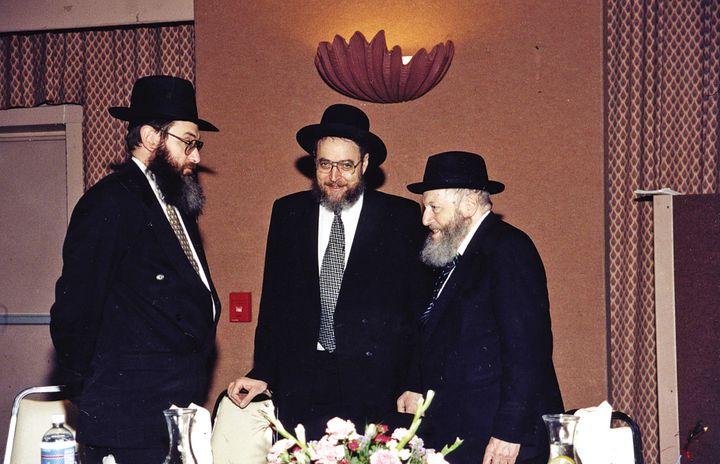
Baltimore and Beyond
When Rabbi Herman Neuberger passed away in 2005, Rav Sheftel stepped in to fill the void without trying to be someone he wasn’t, putting his own spin on the skills he had learned from his father and imbuing them with his personal style. When it came to raising money for Ner Yisroel, Rav Sheftel would describe himself not as a fundraiser but as a “friend-raiser,” appreciating that building relationships was crucial to bringing in donations to benefit the yeshiva. It was something that came easily to Rav Sheftel who sincerely cared for people, no matter who they were, where they came from or how old they were.
“He had a gutzkeit about him,” explained Kadden. “When people would call, whatever the circumstances, he would make time to listen because they needed someone to talk to. You didn’t have to have money, power or connections - you just had to be a human being. If someone had a tzara, Rav Sheftel was a listening ear.”
“He was truly meurav im habriyos,” added Dr. Jakobovits. “He treated everyone as if their personal interests were in his crosshairs whether you were a junior, a senior or a kid. When my daughter would call his house to speak to his daughter and he picked up the phone, he would have a whole schmooze with her, asking how school was going, who her teacher was and where she was going to camp.”
Rav Sheftel worked closely with other Torah institutions and Beth Medrash Govoha president Rabbi Aaron Kotler would call him to discuss certain scenarios, often finding that Ner Yisroel was dealing with similar issues. And then there were times when Rabbi Kotler would pick up his phone to find Rav Sheftel on the other end saying, “I hear you have this going on … how can I help?”
“It is very rare to see someone of that stature, and in that position, have such an understanding of every person and every situation and have such solid judgment of how to deal with difficult situations,” observed Rabbi Kotler. “Because he had that understanding, he could do anything, any time, and everyone felt they could relate to him. He had the ability to solve things and a supreme confidence married to his incredible humility.”
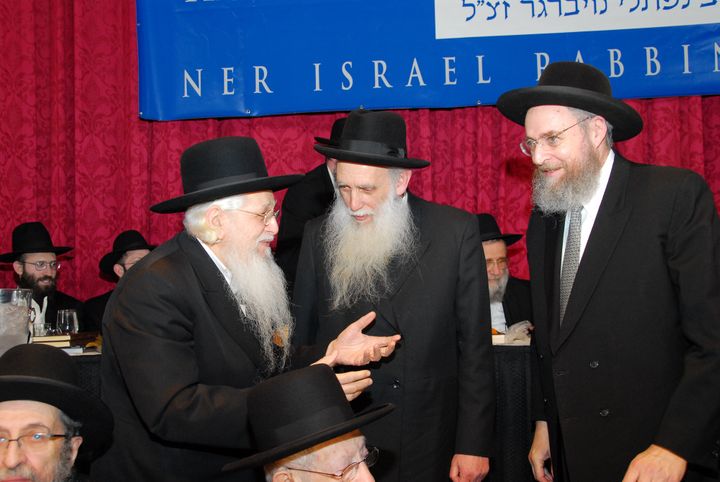
Having worked closely with Rabbi Herman Neuberger and Rav Sheftel, Agudath Israel of America’s vice president for government affairs and Washington director and counsel Rabbi Abba Cohen saw both father and son taking a personal interest in Ner Yisroel and the Jewish community at large. Rabbi Cohen, an alumnus of the yeshiva, recalled Rav Sheftel’s ability to see not just the forest, but also the trees.
“Sheftel was always thinking and always thinking ahead,” remarked Rabbi Cohen. “He anticipated problems, issues and concerns, particularly when they affected limud Torah in our yeshivas and Bais Yaakovs. He never stopped thinking about the condition of Klal Yisroel and how it would be affected by government actions as well as societal norms.”
Rav Sheftel’s gift of being able to create a rapport with everyone he met made him an extremely effective advocate at all levels of government.
“He wasn’t bashful in Washington and I don’t think he was bashful ever,” reflected Rabbi Cohen. “He would go to Washington for a purpose and to convey the community’s interests. Even coming in in his homburg and kapota, his wide range of knowledge and ability to speak to every person about their interests made them feel comfortable.”
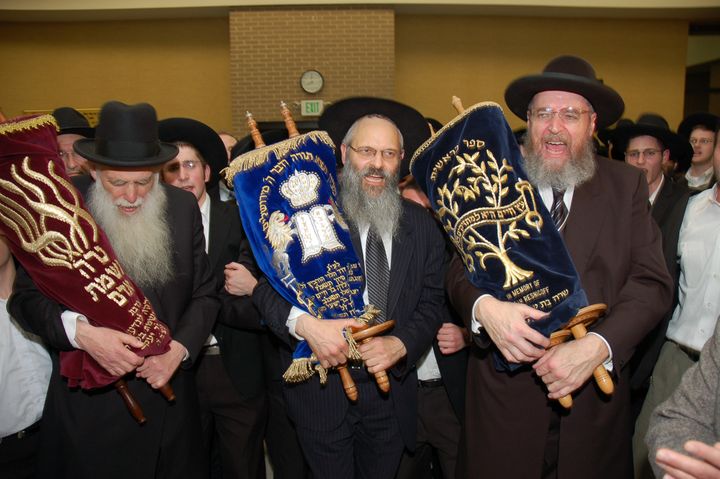
Rabbi Ariel Sadwin is yet another Ner Yisrael alumnus who went on to a career in public service, manning what he describes as “the home ship” as the director of Agudath Israel of America’s Maryland office. Agudah meetings with elected officials were held in Rav Sheftel’s office, a logical choice given his position as Baltimore’s most influential rabbinic leader and Ner Yisroel’s status as the most prominent Jewish communal institution in the state.
“The Neuberger persona and their position of local leadership had tremendous influence,” said Rabbi Sadwin. “Whenever we would reach out to someone who was running for public office we would ask them, ‘Have you met with Rav Sheftel yet? Have you been to the Ner Yisroel campus yet?’”
It was Rav Sheftel’s support that helped Governor Larry Hogan, a Republican, win Maryland, a true-blue state. Governor Hogan was a real estate developer when he first set his eye on Annapolis and he had been advised to visit Ner Yisroel to understand the yeshiva’s true impact on the community.
“We had a great meeting with him and we established a terrific rapport,” said Rabbi Sadwin. “He followed up with a meeting with local rabbonim and school heads and when he walked out a champion on the night of his victory, he thanked the Jewish community of Baltimore County for their support.”
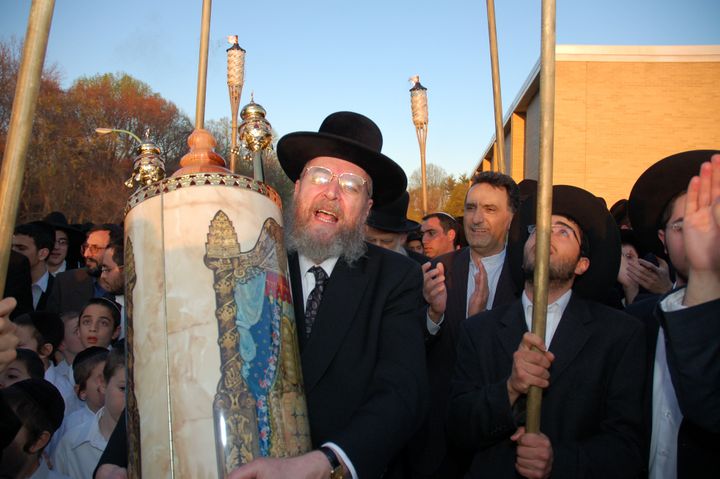
With Ner Yisroel attracting talmidim from all across the United States and beyond, its influences were felt far outside Pikesville. Harbor Group International CEO and chairman Jordan Slone recalled the close ties between his hometown of Norfolk and the yeshiva, and when time came to rebuild the city’s aging shul, he reached out 233 miles to the north for assistance.
“We needed a lot of money for a capital campaign and were having a parlor meeting for large donors,” said Slone. “There were people who didn’t think we would be able to raise the amount we needed and we brought in Rav Sheftel to be the keynote speaker. He spoke about how Hashem makes miracles happen, but only after you do your hishtadlus, and explained that if you try to get there yourself, Hashem will give you that little extra push to make it happen.”
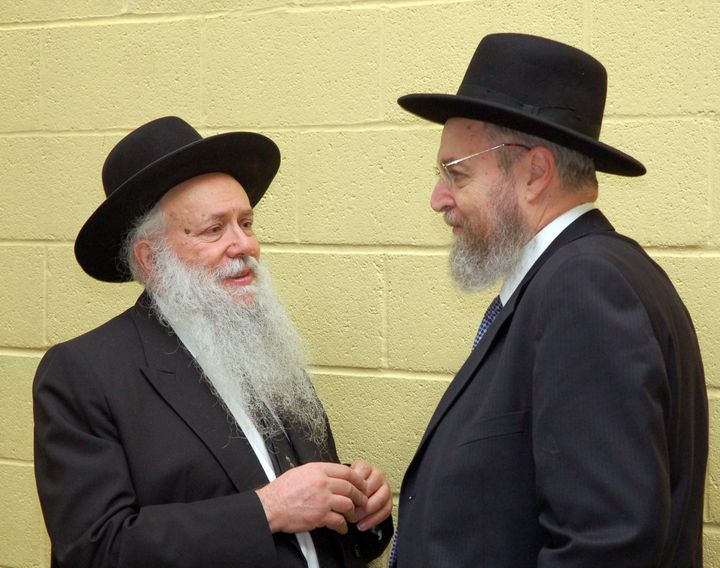
The campaign was a success, something that Slone believes firmly was due to Rav Sheftel’s inspiring words, and since then the Norfolk community has grown tremendously. Over time the two men grew closer and would call each other often for advice in their respective fields of expertise. Not that long ago, when Rav Sheftel made what would be his final fundraising trip, it was to Harbor Group’s New York offices.
“He came with his son Rav Boruch and we had lunch and talked,” said Slone. “Several of his former talmidim work in my office and it gave him such pleasure to see them there.”
A True Shaliach Tzibur
Rav Sheftel radiated warmth wherever he went and The Associated president Marc Terrill has fond memories of both meetings and shared meals over the course of a relationship that spanned nearly 20 years.
“When we met it was as if I was reuniting with a cherished wise uncle,” said Terrill. “I always found him to be caring, genuine and astute and he had great compassion and empathy. It was a pleasure when I would reunite with him, and I particularly enjoyed when we would break bread in the executive dining room of Ner Israel and have a kibitz and a laugh.”
But it wasn’t only Rav Sheftel’s personality that made him memorable. His seemingly towering presence filled Ner Yisroel and Slone recalled honoring Rav Sheftel with the final bracha under the chupa at all four of his children’s weddings
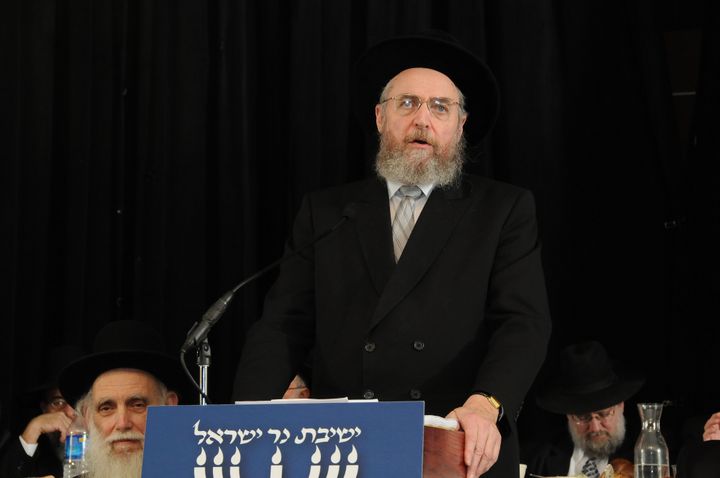
“At the first wedding, they put a microphone in front of Rav Sheftel, but he pushed it away saying, ‘I don’t need that and you’ll see why soon,’” said Slone. “He gave such a bracha - it was really unbelievable.”
When Simchas Torah came, Rav Sheftel lit up the yeshiva and Rabbi Yissocher Frand, who came to the yeshiva at age 15, would make it a point to go back to Ner Yisrael for Simchas Torah instead of spending the final days of yom tov at home with his family.
“Rav Sheftel really made Simchas Torah from the time he was a bochur almost until the end,” noted Rabbi Frand. “He picked the niggunim and that was how he was throughout his life. Whenever it came to anything - what to do and how to do it - everyone turned to him.”
“He had an excitement about him,” added Dr. Jakobovits. “There was nothing about him that was laid back or on low gear and he drew you along. If we made a sheva brachos in the house, we knew the best thing was to get Rav Sheftel to join. His singing, his warmth, his stories - you didn’t need a band. You just plugged him in and off he went.”
As Purim drew near excitement would be at an annual high in Ner Yisroel’s mechina, with the Shabbos of Parshas Zachor each year dubbed “Shabbos Sheftel.” Instituted over 30 years ago, it was an opportunity for the high schoolers to gain a healthy perspective of what a Ner Yisroel Purim was all about, given over by the man who was the true ruach of the yeshiva.
“He davened all the tefilos and spent the whole Shabbos with the mechina,” explained Kadden. “They looked forward to it the whole year which speaks to his leibidikeit, his warmth and the respect and admiration that everyone had for him.”
Rav Sheftel’s ability to inspire from the amud created a veritable army of baalei tefila, carrying his legendary nusach far and wide. He would happily knock out a tape for an aspiring shaliach tzibur, his nusach eventually digitized and uploaded to the Ner Yisroel website where it was readily available to all. His tefilos on the yomim noraim were nothing short of awe inspiring, with hundreds singing along with him in the yeshiva beis medrash. Discussions would eventually ensue later in the day about minor modifications that Rav Sheftel might have made in a davening where even the smallest nuances were eagerly anticipated.
Talmidim who moved on to other yeshivas continued to hear Rav Sheftel’s davening in their hearts, no matter where they were.
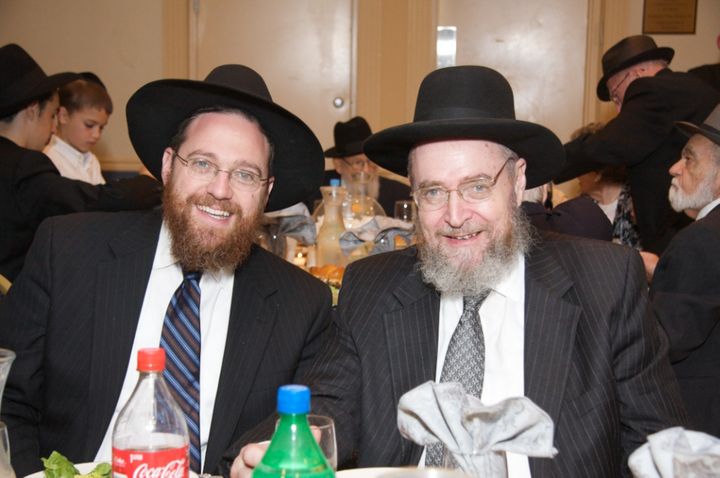
“When we went off to the Mir as bochurim and heard a different nusach on the yomim noraim, all of us in my chevra sang Rav Sheftel’s nusach in our seats,” said Rabbi Sadwin, one of countless Ner Yisroel alumni who is now a baal tefila à la Rav Sheftel. “We all came back to our dira and asked each other, ‘Did you do this knaytch, that knaytch?’”
Indelible Impressions
Speaking at the levaya, Rav Shraga Neuberger said that among the hundreds of phone calls and letter that his family had already received, there were many from former Ner Yisroel talmidim who were now baalei tefila and continue to keep Rav Sheftel’s power and emotion in mind as they stand at the amud even 30 and 40 years later. Yet despite his commanding presence, both in his davening and in his day to day life, Rav Sheftel’s presence was never overwhelming.
“Many people said that when my brother came into a place, he filled the room and made space for everybody else at the same time,” said Rav Shraga Neuberger.
That sensitivity and concern for others was something that permeated Rav Sheftel’s very existence. When COVID became a reality last spring and the yeshiva had to close its doors and transition to remote operations, the question of whether or not parents should continue paying tuition arose. While Rav Sheftel was able to confidently say that tuition was warranted and appropriate since shiurim were continuing and rabbeim were devoting possibly even more hours to their students than normal, the notion that parents were also paying room and board bothered him. Yes, the yeshiva was still maintaining a skeleton crew and, yes, much of the food had already been purchased, but despite those expenditures, how could Ner Yisroel charge parents to feed and put up their sons who were now living at home?
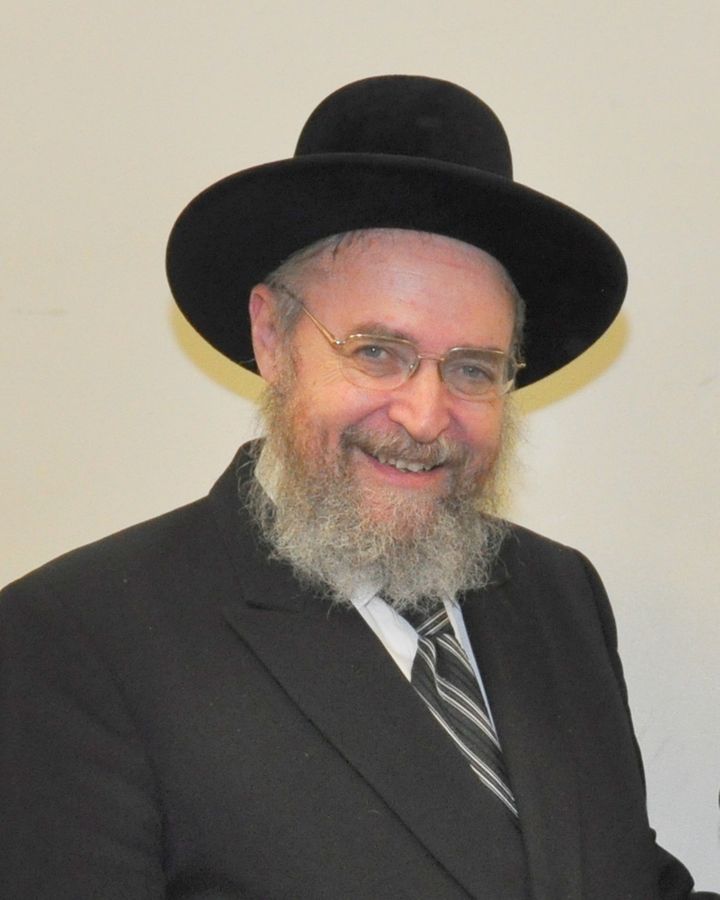
“Rav Sheftel said that we had to return that money, even though it left us holding the bag,” said Kadden. “People were sick, had expenses and Rav Sheftel understood that they were going through difficult economic times. He decided to refund room and board for every student, acknowledging that while it would be a strain for the yeshiva, it was the right thing to do.”
Months later, Ner Yisroel was repaid for its loss. When the second round of PPP loans came through, applicants were required to show a 25 percent loss sustained during any quarter of the year. At first, the fourth quarter of the year seemed like a logical choice since the yeshiva had been unable to run its annual end of year fundraiser, but the differential in revenue didn’t meet the required threshold. Instead, it was the second quarter of the year, when the yeshiva decided to reimburse parents for room and board, that made Ner Yisroel eligible for the new funding.
“It was beautiful to see that with Rav Sheftel’s leadership and ehrlichkeit, it was as if Hakadosh Baruch Hu smiled at him and the yeshiva and gave them the ability to qualify for the second round of funding, repaying them for what they had lost,” said Rabbi Zwiebel.
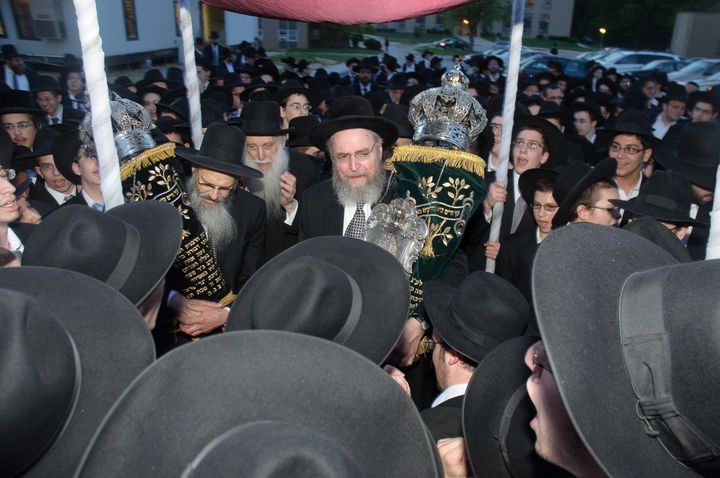
Much like the home he grew up in, Rav Sheftel’s house was filled with visitors. Even with seven children of their own, the Neubergers frequently had guests staying over in their three bedroom Yeshiva Lane apartment, sometimes for weeks at a time.
“We didn’t feel put out at all,” remembered Rav Sheftel’s son, Rav Boruch Neuberger. “This was what we did. This was normal for us.”
Friday night saw more visitors converging on Rav Sheftel’s home as bochurim came for an oneg Shabbos, with Rebbetzin Judith Neuberger stepping up as her husband’s partner each week in more ways than one.
“Three quarters of the bochurim would end up in the dining room with my father, while the rest were in the kitchen with my mother who had a lot of influence on them,” noted Rav Boruch. “My mother was actively supportive of my father’s efforts and a full partner in the myriad chasadim that they were both involved in.”
As much as Rav Sheftel was a very public persona, Rav Boruch Neuberger recalled several traits that may have been less known.
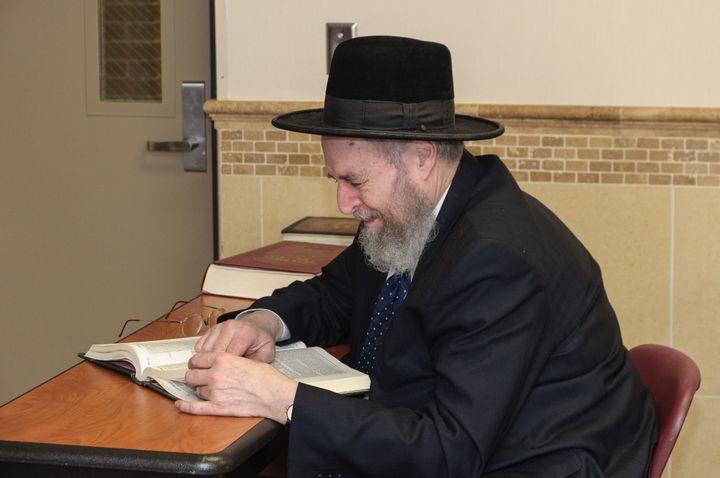
“My father was the greatest farginer I ever knew,” said Rav Boruch Neuberger. “He rejoiced in someone’s chidush haTorah as much as his own and in the 15 years that I worked with him, I never got on a plane or a train with him where the first thing that came out of his briefcase wasn’t a Gemara. It never happened.”
But above all, Rav Sheftel was larger than life, a multi-faceted diamond whose presence illuminated the world in countless ways.
“One of the reasons that people don’t leave Baltimore or Yeshiva Lane is the ruach with which Rav Sheftel energized this special little world of ours,” observed Dr. Jakobovits. “As a person, everything that I think about him could be described as ‘very.’ Whatever characteristic you can think of, when it came to Rav Sheftel you have to add the word ‘very’ because that was who he was. He was the ultimate people person and those qualities permeated Yeshiva Lane. We all feel bereft of something special.”
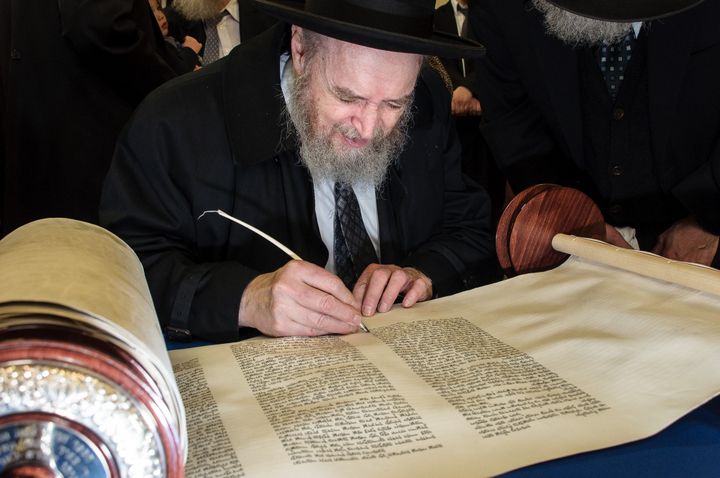
Even as Ner Yisroel faces an incomprehensible Purim, there is no doubt that Rav Sheftel’s legacy is one that will live on, woven deeply in the fabric of the yeshiva, in the hearts of generations of talmidim and in shuls worldwide as baalei tefila share his Shoshanas Yaakov, his Tefilas Geshem and his iconic Hineni.
“Just to daven a regular Shacharis, Mincha, Maariv with him lifted the spirits, his voice loud enough to be heard throughout the beis medrash without being overwhelming,” said Dr. Jakobovitz. “He would always say his davening showed the success of the tzibur and believed that while he was the wick, the tzibur was the fuel that made their tefilos soar. But above all, he wasn’t just a voice - he was a person who truly inspired and there was nothing that was too much for him to do for someone else.”
תנצב״ה
